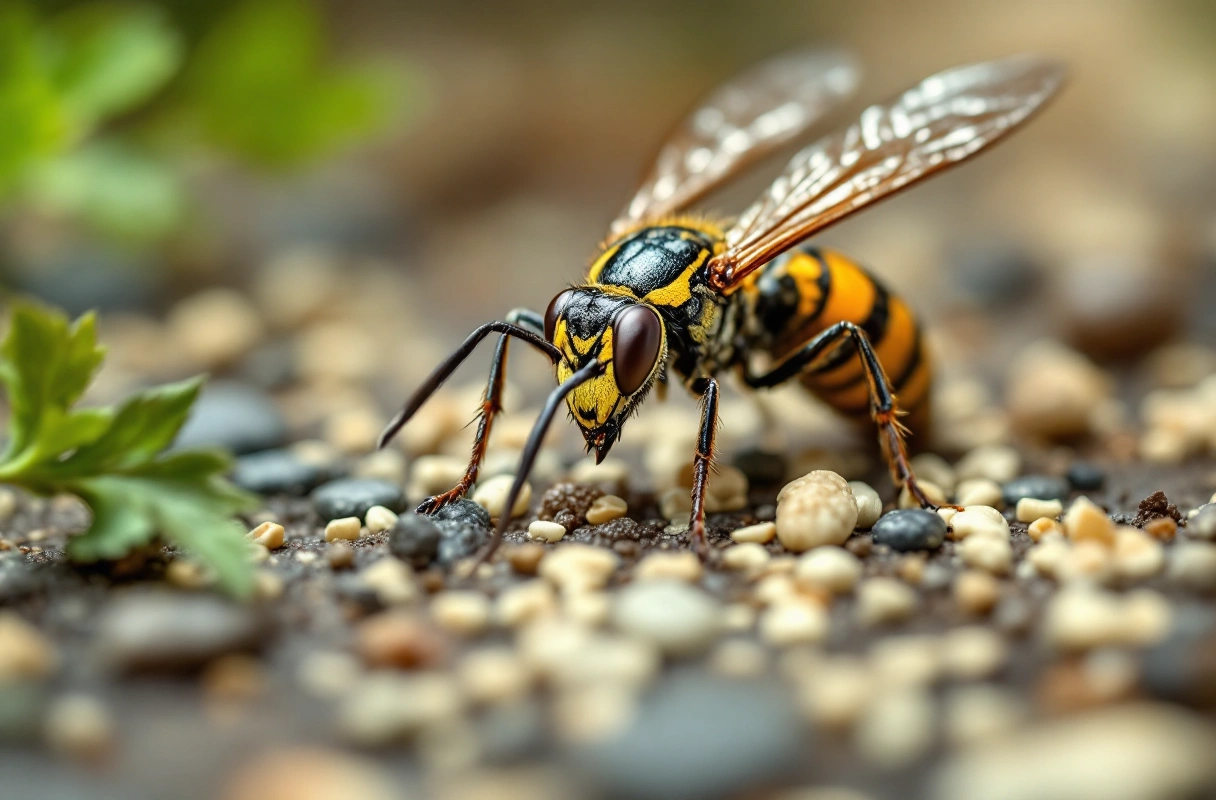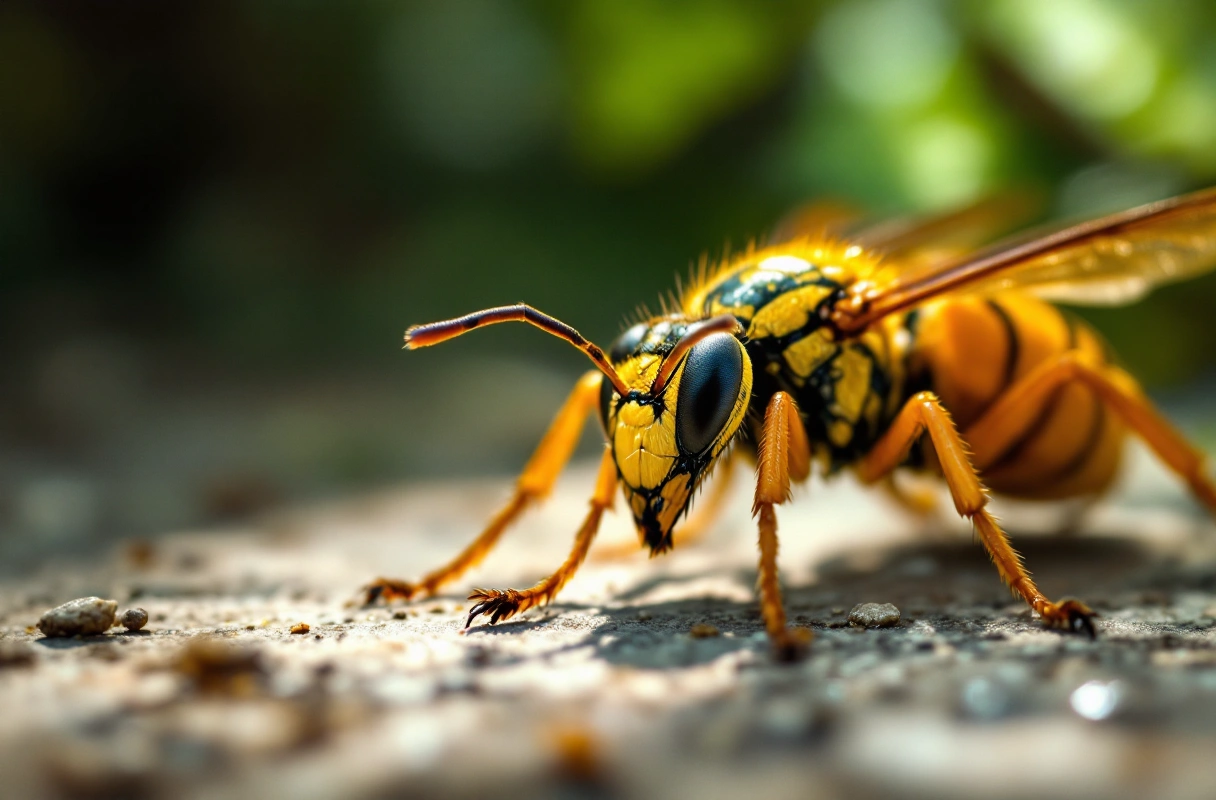
The concept of consuming insects, known as entomophagy, is gaining traction as a viable alternative to traditional livestock. As we face increasing challenges related to food security, climate change, and environmental sustainability, insects present a promising solution. Insects are not only rich in nutrients but also play a critical role in maintaining biodiversity and supporting ecosystems. This article will delve into the nutritional benefits of insects, their safety as a food source, and their contribution to sustainability and biodiversity.

Insects are often touted as a superfood due to their impressive nutritional profile. They are rich in protein, healthy fats, vitamins, and minerals, making them an excellent alternative to conventional protein sources.
Insects provide a high protein content, often surpassing traditional sources such as beef, chicken, and fish. For example, crickets contain approximately 60-70% protein by dry weight. This makes them a highly efficient protein source for human consumption. Moreover, they contain essential amino acids, which are crucial for human health.
In addition to protein, insects are a source of healthy fats, including omega-3 and omega-6 fatty acids. These fats are vital for brain health and overall well-being. Mealworms, for instance, have a fat content that ranges between 20-30%, depending on their diet and life stage. This balance of fats can contribute to a well-rounded diet.
Insects are also rich in various vitamins and minerals. For example, they provide significant amounts of vitamin B12, iron, zinc, and calcium. These nutrients are essential for various bodily functions, including immune response, blood health, and bone density. The nutritional diversity found in insects makes them a valuable addition to diets, particularly in regions where traditional nutrient sources may be scarce.

While insects offer numerous nutritional benefits, it is essential to consider food safety when incorporating them into diets. Proper handling, preparation, and sourcing are crucial to ensure that insects are safe for consumption.
It is vital to source insects from reputable suppliers who follow safe farming practices. Wild-caught insects can carry parasites or harmful bacteria, so it is advisable to consume farmed insects that have been raised in controlled environments. When preparing insects, cooking them thoroughly is essential to eliminate any potential pathogens. Roasting, frying, or boiling are effective methods to ensure safety.
Some individuals may experience allergic reactions to insects, particularly those who are allergic to shellfish. It is crucial to be aware of potential allergens and consult with a healthcare professional if uncertain about consuming insects. Additionally, introducing insects gradually into the diet can help monitor for any adverse reactions.
As the consumption of insects becomes more mainstream, regulatory bodies are beginning to establish guidelines for their safety. In the European Union, for example, the Novel Food Regulation governs the sale of edible insects. Understanding and adhering to these regulations can help consumers make informed choices.

Insects are heralded as a sustainable food source due to their minimal environmental impact compared to traditional livestock farming.
Insect farming produces significantly lower greenhouse gas emissions than conventional meat production. For instance, crickets emit approximately 80% fewer greenhouse gases than cattle. This stark contrast underscores the potential of insects to mitigate climate change through reduced carbon footprints.
Insects require less land, water, and feed to produce the same amount of protein as traditional livestock. For example, crickets require only about 1.7 kg of feed to produce 1 kg of body weight, while cattle require around 8 kg. This efficiency not only conserves resources but also reduces the strain on agricultural systems.
Insects can be raised on organic waste products, such as food scraps and agricultural by-products. This process not only recycles waste but also converts it into high-quality protein. Utilizing insects for waste reduction can significantly contribute to a more circular economy, reducing landfill waste and promoting sustainability.
Insects are crucial for maintaining biodiversity within ecosystems. Their roles as pollinators, decomposers, and food sources for other species highlight their importance in ecological balance.
Many insect species, including bees and butterflies, are vital pollinators for a wide variety of plants. Pollination is essential for the reproduction of flowering plants, which in turn supports food systems and natural ecosystems. The decline in pollinator populations poses a significant threat to biodiversity, making the conservation of these insects crucial.
Insects also play a key role in decomposition, breaking down organic matter and recycling nutrients back into the soil. This process supports plant growth and contributes to soil health. Without insects, the decomposition process would be significantly slower, leading to nutrient accumulation and disrupted ecosystems.
Insects serve as a critical food source for many animals, including birds, mammals, and reptiles. Their presence in food webs supports a diverse range of species and contributes to ecosystem stability. Protecting insect populations is essential for maintaining healthy ecosystems and preventing the decline of species that rely on them for sustenance.
Despite the clear benefits of consuming insects, several misconceptions persist that may deter individuals from embracing this sustainable food source.
One common misconception is that insects are unpalatable. In reality, many insects have a mild, nutty flavor and can be prepared in various ways to enhance taste. For example, roasted crickets can be seasoned and used as a crunchy topping for salads or soups, while mealworms can be incorporated into energy bars or baked goods.
Another misconception is that eating insects is only acceptable in certain cultures. However, entomophagy is practiced in many countries worldwide, including Mexico, Thailand, and parts of Africa. As global awareness of sustainability increases, more cultures are beginning to explore the culinary potential of insects.
Some individuals believe that insects lack the nutritional value of traditional protein sources. On the contrary, as discussed earlier, insects can provide comparable or even superior nutritional benefits, including high protein content, essential fats, vitamins, and minerals.
As we move forward, the integration of insects into our diets seems inevitable. With growing concerns about food security and environmental sustainability, insects present a viable solution.
Public perception of insects as food is gradually changing. As more chefs and food brands experiment with insect-based products, acceptance is likely to increase. Innovations in food technology, such as insect protein powders and snacks, are making it easier for consumers to incorporate insects into their diets without significant lifestyle changes.
As the market for edible insects expands, regulatory frameworks will continue to evolve. Governments and health organizations are likely to develop clearer guidelines for the safety and labeling of insect products. This will help build consumer trust and facilitate market growth.
Education plays a crucial role in promoting the benefits of insects as food. Initiatives aimed at raising awareness about the nutritional and environmental advantages of consuming insects can help shift public perception. Engaging with communities, schools, and food organizations can foster interest and acceptance among diverse audiences.
Insects are not just a sustainable food source; they are a vital part of our ecosystems and offer numerous nutritional benefits. As we explore the potential of insects in our diets, it is essential to address misconceptions, prioritize safety, and advocate for sustainable practices. By embracing insects, we can contribute to a more sustainable future while enjoying a diverse and nutritious diet.
At Banana Slug Club, we are passionate about fostering curiosity and understanding of the natural world, including the fascinating realm of insects. By learning about the nutritional, ecological, and cultural significance of insects, we can inspire future generations to appreciate and engage with nature in meaningful ways.
For nature enthusiasts, students, and curious minds eager to learn more about the world around us, Banana Slug Club offers a wealth of resources and activities. Explore our website for engaging materials and programs that connect young learners with nature, science, and the importance of biodiversity.
If you are excited about exploring the wonders of the natural world, including the role of insects, we invite you to join us at Banana Slug Club. Together, we can nurture a deeper understanding of our environment and encourage the next generation of nature explorers. Visit our website or contact us for more information on how to get involved.
Get free resources, early access to new features and updates.
No spam. Just fun educational emails!